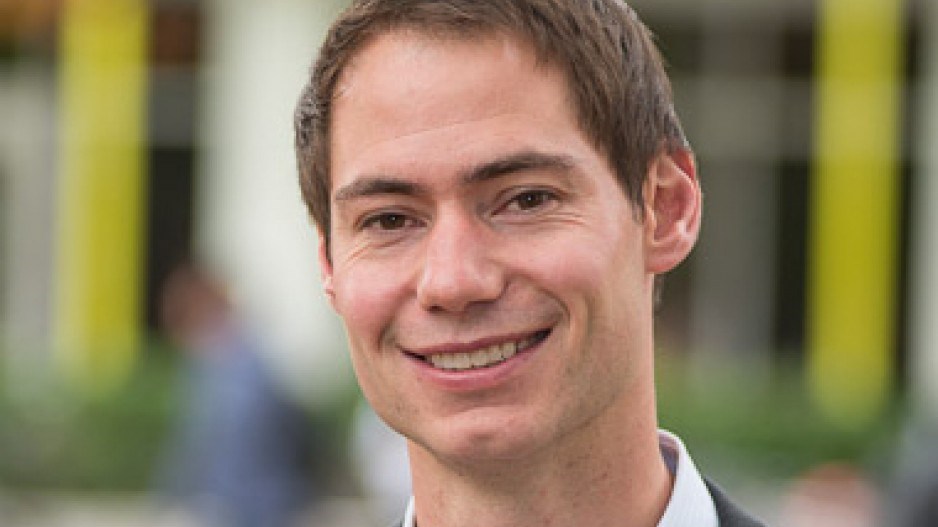Business in Vancouver’s “How I Did It” feature asks business leaders to explain in their own words how they achieved a business goal in the face of significant entrepreneurial challenges. In this week’s issue, Dustin Sproat, co-founder of Shnarped – a mobile app that connects fans with pro hockey players – shares his secrets for making a successful Dragons’ Den pitch. Sproat and his partner, Kyle Hagel, were so successful in wowing all five Dragons that their pitch became the season’s finale.
“We connect hockey fans with their favourite pro hockey players across a mobile application. Basically, the players love the product, and they use it a lot. But we needed to grow the user base. We decided we were going to go on Dragons’ Den.
“It was much less about funding. We went on to try to gain some name recognition, and if we happened to make some new friends and bring in some investment, that was a bonus. The show airs to over one million Canadians, who generally love hockey, and that’s who we want to be using applications.
“We knew that there are certain things about a pitch that make it more likely to air. There’s some balance between entertainment value and business value. If you can come up with something really entertaining that they can do on TV, then you’re more likely to pass the audition.
“We didn’t want to get torn apart out there, so the preparation that we did leading up to the show was to talk to at least 10 other startups that had been on the show and see what they did. There’s a guy in Hamilton that had been asked to be one of the Dragons that Kyle’s connected to. We did a little run-through with him. We prepped every question imaginable.
“We told a good, quick story. We got them excited about the concept, we physically showed them how it worked and then we nailed four questions to a tee. We took a widescreen TV and flipped it up the size of an iPhone, and Kyle talked through how the app works. I think at that point they were pretty interested. The thing you can do to please any investor is get them excited about your story.
“They asked how we were going to monetize it. We gave them a story about how we’re going to license it to teams, and we knew our numbers. Every question they asked, we knew exactly the number they were looking for.
“We went in asking for $100,000 for 10% of the company, and they gave us $250,000 for a third of the company. We didn’t close that deal. What happens on the air is the beginning of a negotiation. Many entrepreneurs turn down the deal the day after, and more often many Dragons turn down the deal after a long due diligence process. We did not get $250,000 from the Dragons. We closed a deal with Jim Treliving.
“We raised quite a bit of money from other investors in the time since we aired. We basically raised about that amount of money on terms that were much better than we negotiated on the show.”




